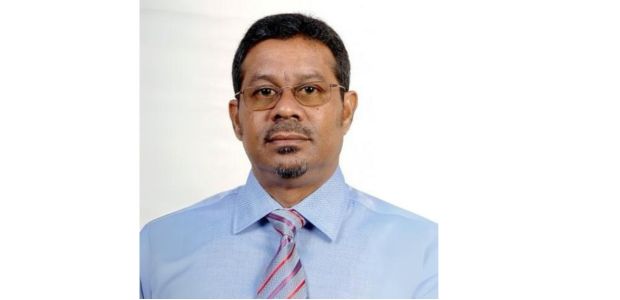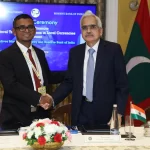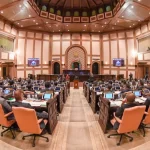Ahmed Hafiz, a revered marine biologist and an indispensable resource on Maldivian marine life, passed away recently, leaving behind a legacy of unparalleled knowledge and kindness.
Hafiz, whose expertise was admired among his colleagues and the public alike, was often described as a walking encyclopedia. His profound understanding of the fish species in Maldivian waters made him the go-to expert for anyone seeking information about the marine ecosystem. A product of the Marine Research Unit, Hafiz worked under the distinguished Maldivian marine scientist Maizan Hassan Manik, himself a rare luminary in the field.
Former President Maumoon Abdul Gayoom said on Twitter, “Deeply saddened by the passing of the legendary Ahmed Hafiz, who had diligently served our fisheries sector as well as education and sports for many years.”
Former Minister Abdullah Kamaludeen aptly described Hafiz as “diligent at work, extremely knowledgeable, and 100% committed to the people and government,” adding that he was a “rare type,” a sentiment echoed by many who had the privilege of knowing him. Hafiz’s dedication to his work and his eagerness to share his knowledge set him apart in the scientific community.
My own encounter with Hafiz’s expertise came when I grew curious about kattolhi (Promethean escolar), a type of fish I had not experienced before. Upon asking Hafiz, I was immediately struck by his comprehensive knowledge. True to his reputation, Hafiz was indeed a walking encyclopedia on the fish that inhabit our waters. His instant and detailed response was nothing short of awe-inspiring.
On a visit to the home of close friend and esteemed publisher Ismail Abdullah, known as Wadi, two books stood out in his study, carefully separated from the rest. These were the first of the three books published in English on the fish of the Maldives, a groundbreaking project overseen by Wadi Ismail and printed by Novelty. Hafiz’s contributions to these volumes were invaluable, cementing his reputation as an authority in marine biology.
Wadi Ismail Abdullah fondly recalled his lengthy conversations with Hafiz, reminiscing about the many insights and stories shared. Hafiz was more than just a scholar; he was a kind and approachable man, always willing to engage and assist, unlike many today who consider answering their mobile phones beneath their station.
Hafiz’s legacy is one of immense knowledge, accessibility, and generosity of spirit. He will be deeply missed by colleagues, friends, family and all who benefited from his vast expertise and warm demeanor.












